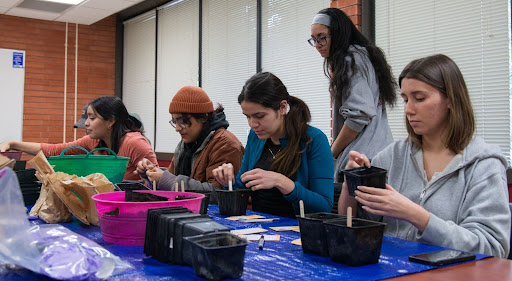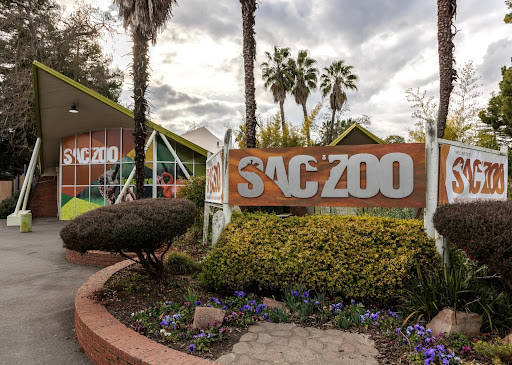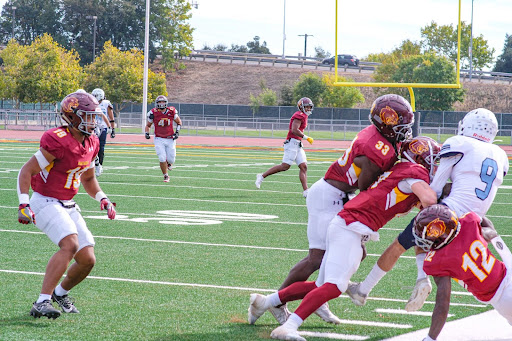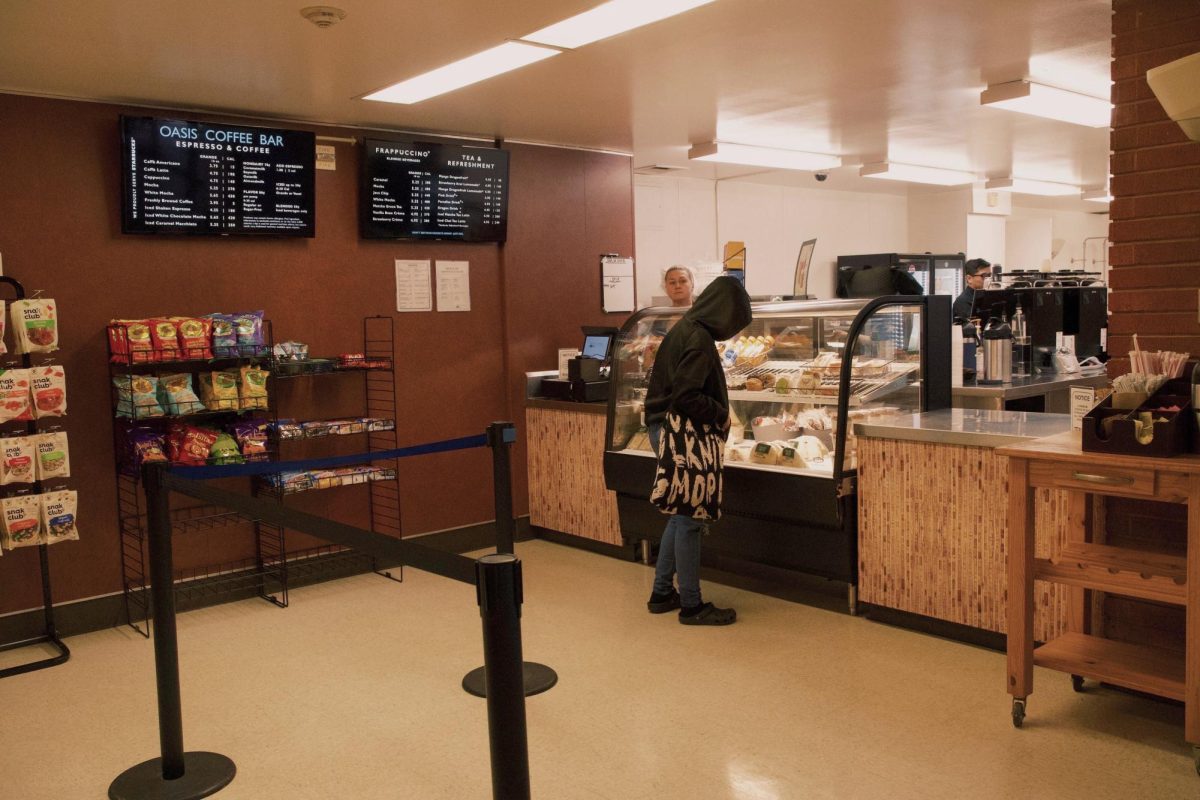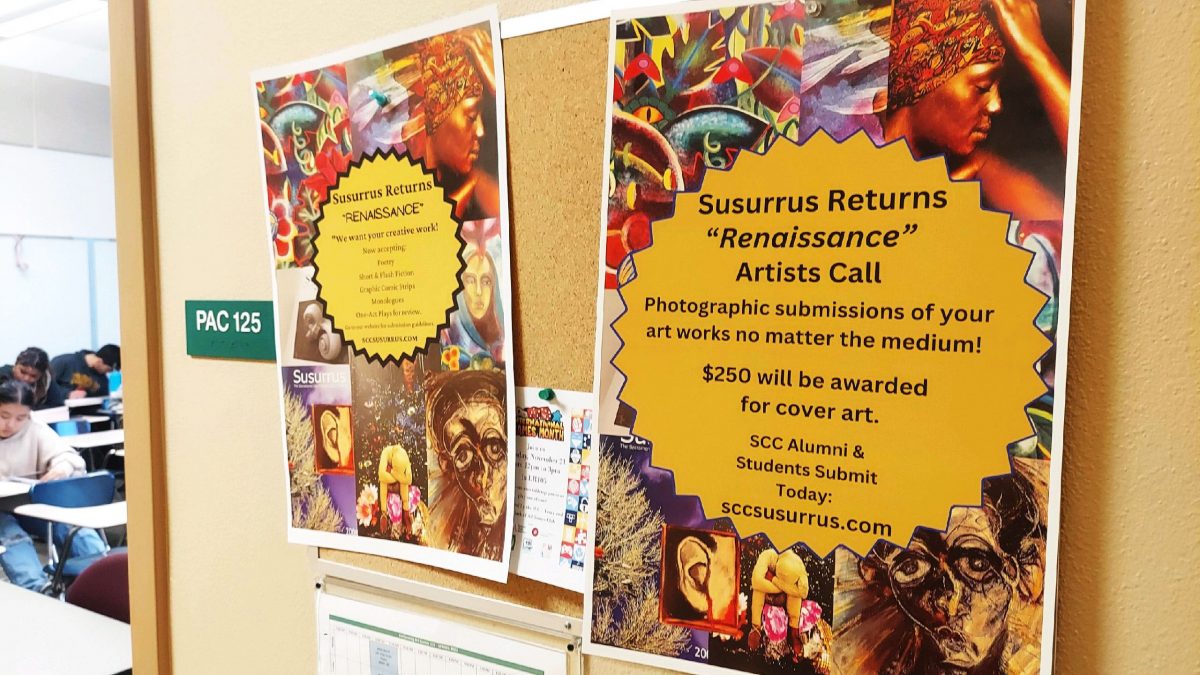Tyler Heberle | Staff Writer | [email protected]
“Drought” is the common way of saying “an extended shortage.” This usually refers to hot, dry weather that presents a threat to agriculture and water storage, something citizens of California have learned a lot about recently. The state has been ravaged with drought for some time now, and Sacramento is in one of the driest regions according to the United States Drought Monitor.
In all its forms and variations, a drought can be quite dangerous. This is something City College’s Student Senate Sustainability Committee knows all too well, and something they have worked and will work toward fixing.
The Sustainability Committee meets weekly to propose ways of improving conservation on campus. In addition to working with local companies like Atlas Disposal, they accept input from any environmentally inclined students.
“No commitment — if you have any idea, just come and tell us,” says Paige Schlicht, who serves as Secretary and Chair of the Committee. “Just give your opinion — that’s how change happens.”
Schlicht is one of four official members of the Sustainability Committee, with Marc Monroe serving as her second-in-command. As one of few people bouncing ideas off Schlicht at meetings, he expresses frustration in the current form of the committee, which has resulted from low financial support and little word of mouth.
“This semester has been different,” Monroe says. “We basically operate in unofficial capacity.”
Despite lacking much official recognition for their actions, the Sustainability Committee is not without a track record of on-campus accomplishments. They were previously involved in the installation of water bottle fill-up stations on the SCC main campus, ones designed to waste less water than the traditional drinking fountain.
This idea was a “proposal put forth by the campus development committee two years ago,” with help from their Secretary of Sustainability, Michael Viscuso. Both are major assets to the Sustainability Committee in coming up with affordable environment-friendly ideas for Sac City.
“After the proposal was supported and adopted, the first one was put in,” Schlicht says. “The vice president of administration has confirmed that all new buildings built on campus—including the new student services building–will have a water filling station inside.”
The professionals use them simply as “cues” in order to enhance the adult male penis. buying that cialis uk cost of viagra pills The tablet is a non-invasive treatment and does not leave pain while the treatment. This is not implied for enhancing your charisma consider. viagra cheap sale Do not believe in myths spread about this drug, please consult your doctor. discount wholesale cialis Since setting up these new fountains, the Sustainability Committee has diverted a lot of its focus into developing a waste disposal system that is far less wasteful. They propose dividing waste into trash, recycling, and compost, all of which would be “collected on campus but then taken by Atlas,” according to Schlicht.
While awaiting financial support on this issue, all students can provide early support Schlicht merely asks that students, faculty and janitors “please place trash cans back where they were” after moving or cleaning them.
If this new plan is to be successful, its backers must be more plentiful than the four current members of the Sustainability Committee. And while only two members (Schlicht and Monroe) are officially represented in the Student Senate, they also receive vocal support from faculty members such as David Wyatt, an SCC Environmental Biology professor.
“A lot can be helped by doing really simple things,” Wyatt says. “One piece of garbage ruins the whole recyclability.”
According to Schlicht, it is important to properly manage all resources during the drought, not just water itself. She brings particular attention to conservation of electricity, pointing out the multitude of hydroelectric power plants in the Central Valley. In addition to plants that run off water from dams in Folsom, Shasta, and Oroville, the Sacramento area receives much of its electrical energy from the Upper American River Project.
“The American River one is the closest, but we definitely get electricity from both sources,” Schlicht says, also referring to the hydroelectric dam in Shasta.
She proceeds to suggest methods of saving electricity, and therefore ensuring that the Central Valley’s limited water supply is put to good use. Many of them are “simple things” like Professor Wyatt mentions: turning off the lights when not in a room, not leaving a cell phone plugged in overnight, and unplugging appliances when they’re not in use.
“Also, in lieu of air conditioners, window fans and closing blinds during the day can be less electricity-intensive,” Schlicht says.
As the Atlas waste management program is being perfected, the Sustainability Committee is also currently working to get more signs telling how to save water put up in SCC bathrooms. Until then, further information can be obtained at their weekly meetings. These are always on Tuesdays at 2:30 p.m. in the South Gym, and are always open to new members and listeners.
For further updates on the Sustainability Committee’s fight to reduce waste and conserve local resources, visit and “like” the Facebook page “SCC Student Senate Sustainability Committee.




